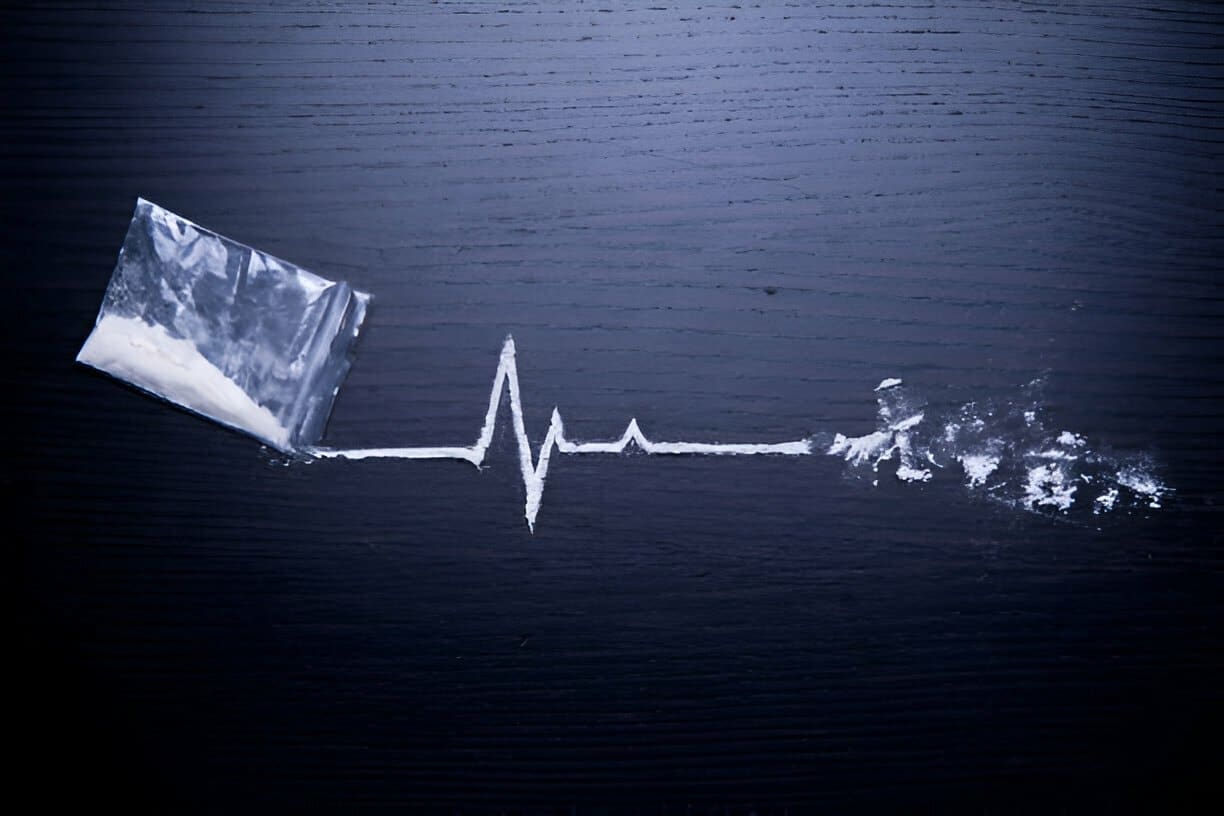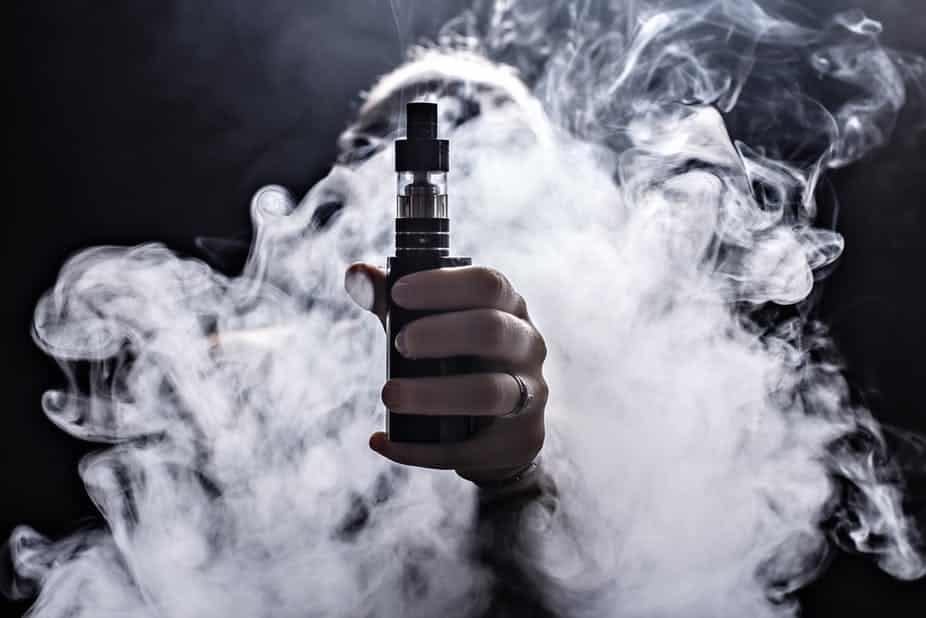Cocaine is a stimulant substance that is predominantly made from the leaves of two South American coca species. Indigenous peoples of South America have been systematically using this substance for generations, either by chewing on the leaves or by smoking them in pipes.
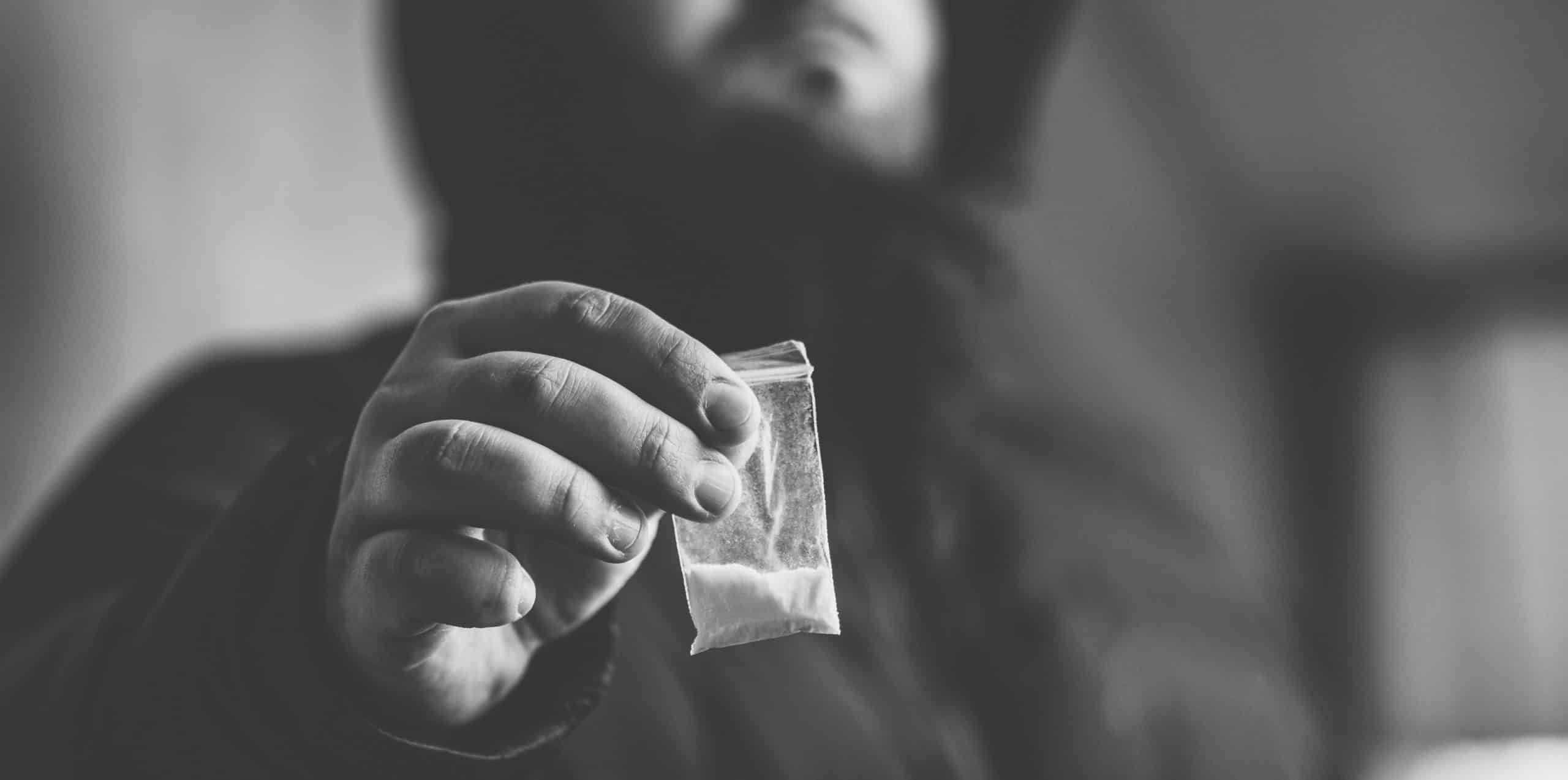
Cocaine is a potent drug that has numerous negative effects on both the body and the brain. One of the attractions of medicine is that it acts nearly instantly.
Cocaine is now the third most misused drug in the UK, behind alcohol and heroin, due to its ease of access and relative affordability.
If your loved one needs support dealing with an Alcohol Addiction, contact us today on 0800 999 1083. We can help you by recommending treatment options.
One of the most addictive illegal narcotics available is cocaine, which causes users to have strong desires for more. Despite the fact that not everyone who uses the chemical will become hooked, some people may do so even after just one use.
Due to the way cocaine activates the brain’s pleasure and reward centres, the desire to consume more of the drug is quite strong and can occur almost immediately. In addition, tolerance to cocaine can form quickly, requiring more of the drug to provide the same level of euphoria.
Cocaine is a very addictive substance. The symptoms of addiction include craving cocaine and ignoring the negative effects that come with it.
You have a higher possibility of becoming dependent on something the longer you use it. Once you start using cocaine frequently, you could find it difficult to stop.
As your tolerance increases over time, you will require increasing amounts of the drug to get the intended results. At some point, you could need a lot of the drug to get by on a daily basis.
The most challenging aspect of quitting cocaine is frequently your psychological dependence. This is due to cocaine’s excessive elevation of dopamine levels, which eventually rewires the brain’s reward system. It can be quite difficult to stop using cocaine if someone becomes addicted.
Cocaine is not physically addictive; thus, stopping abruptly won’t be fatal like it would be with some other class A drugs or substances such as alcohol.
However, this is not to argue that people who abuse cocaine do not exhibit common symptoms.
Usage of cocaine is typically linked to alterations in behaviour. People close to the affected person may notice personality changes like becoming more angry or frustrated.
Family members or close friends are likely to notice these changes first, in which case it can be useful to further classify these behavioural changes using the DSM-V criteria as indicated above.
Cocaine is also a potent stimulant, which means that when used, it causes an increase in brain activity. Even while there are short-term advantages, if the problem is not addressed right once, there may be serious and lasting consequences.
Long-term cocaine users have reported an increased risk of mental health problems such as anxiety and depression as well as paranoia and the possibility of panic attacks.
Further examination of these modifications in the field of neuroscience has revealed that cocaine usage can result in neurophysical changes that impact CNS regions in charge of emotions like pleasure.
The negative impacts are becoming more and more obvious as more research topics are found in this area, particularly when it comes to a person’s long-term health and prospects of future recovery.
Modern research is covering both the mental and physical impacts of cocaine usage. However, the majority of studies are concentrated on the psychiatric repercussions.
This study highlights the negative effects cocaine consumption can have on a person’s mental health.
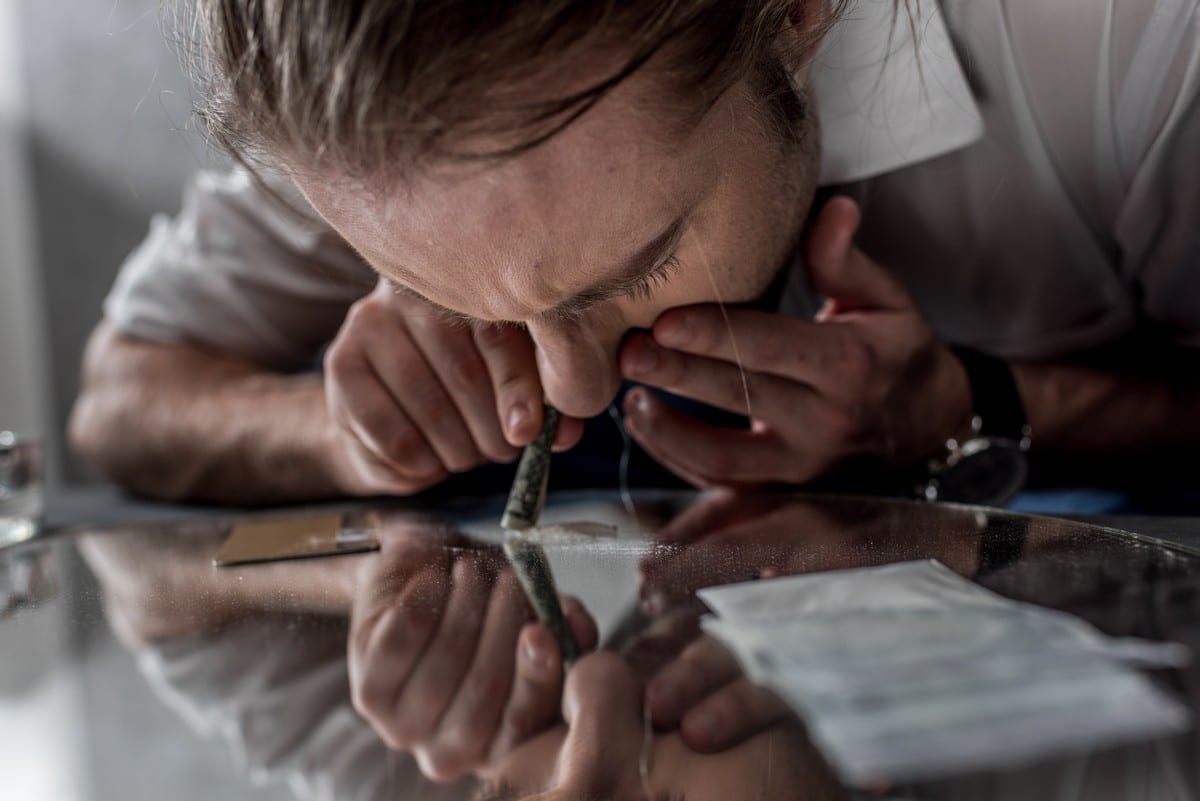
Cocaine dependence or addiction is frequently portrayed inaccurately in the media and by uninformed stereotypes.
The way cocaine addiction is typically presented in television and cinema often deviates greatly from reality. However, certain techniques can be used to classify, comprehend, and diagnose these behaviours. The Diagnostic and Statistical Manual of Mental Disorders (DSM) is one of the most extensively used and approved instruments today. The DSM-V categorises these behaviours based on a multi-symptomatic model and uses four categories of criteria and symptoms that are present in a person with a substance use disorder.
These are listed below:
1 – Loss of self-control: Using more of the drug than intended
2 – Want to cut back on consumption but are unable to do it without professional assistance.
3 – Social issues: disregard for obligations and relationships
4 – Giving up things that the person formerly did
5 – Limited ability to complete duties for work or school or at home
6 – Risky use: Using drugs in risky situations
7 – Continued usage despite repercussions
8 – Physical dependence: a higher tolerance, leading to more usage
9 – Having withdrawal symptoms when trying to cut back or stop using
These factors lead to three severity levels on which an individual’s substance use can be evaluated.
2-3 of the aforementioned behaviours would constitute a mild substance use disorder, while 4-5 of the aforementioned behaviours would constitute a moderate substance use disorder. Six or more of the behaviours mentioned above would constitute a severe substance use disorder (SUD), also known as an addiction.
The degree of the treatment needed in the later stages of the rehabilitation increases with an individual’s ranking on this scale of severity.
Going through the categories of behaviours in yourself or someone you know is a terrific approach to start to grasp the process of rehabilitation that may be required.
Cocaine abuse has the potential to kill, and even if you survive, it can permanently harm your physical and emotional well-being as well as your circumstances and future possibilities. Therefore, the sooner you can kick your cocaine habit, the better. To do this, contact out for expert assistance such as Compare Rehab UK as soon as you can.
It is crucial that you get treatment right away if you find yourself wanting to stop using cocaine but are unable to do so, or if you or someone close to you has already started to experience any bad effects on health or quality of life as a result of your cocaine usage. But there is never a “bad time” to start treating cocaine addiction.
Speak with your doctor or an addiction professional as soon as possible if you have any concerns that you could have a cocaine problem.
Cocaine addicts frequently experience additional linked medical issues that require hospitalisation. Hospitalisation-related illnesses can be a sign of addiction and a great place to start a discussion about cocaine addiction.
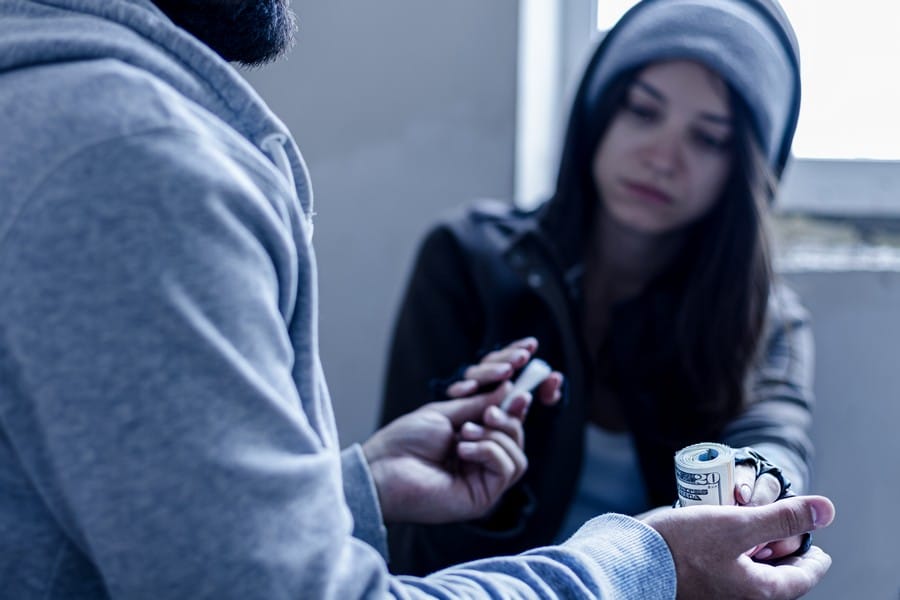
Lab tests at the hospital can prove cocaine addiction; however, there are subtle signs to watch out for.
Cocaine is a stimulant, therefore, users frequently come across as being extremely energetic. People who don’t show any indications of cocaine addiction often have unusually high amounts of energy. Such people are capable of working “endless” hours without growing weary or taking a break. Cocaine addicts can occasionally stop using the substance, and when this occurs, individuals could show signs of anxiety, exhaustion, depression, sleep disturbances, sedation, and increased appetite. This is a clear sign of cocaine addiction, and these symptoms can abruptly be replaced by other symptoms like exhilaration and increased energy.
In some circumstances, it could be appropriate to persuade a loved one to start receiving treatment by using an intervention strategy.
One of the most well-established methods of beginning treating addiction is an intervention, however, because of this, some of the techniques used may be antiquated. The term “intervention” describes the process by which a third party, typically an interventionist or counsellor, assists family members and friends in talking to a loved one about their addiction. This frequently occurs in the person’s home or the counsellor’s office and focuses on the interaction between the person and people who are impacted by their addiction.
The conventional intervention strategy has a 30% success rate in terms of motivating a person to pursue additional rehabilitative choices. However, it is frequently noted that the structure of this approach causes the person to feel challenged or assaulted.
The Community Reinforcement Approach to Family Training (CRAFT) intervention strategy has a far greater rate of success because it adopts a more contemporary strategy and uses an invitational rather than a confrontational approach. The CRAFT technique has around a 70% success rate for those entering additional rehabilitative care after the intervention by assisting those impacted by an individual’s addiction to recognise the challenges faced and start a conversation.
According to a study on crack cocaine addicts, combining an intervention with motivational interviewing and feedback increased commitment to rehabilitation treatment programmes for at least six months. This change was noteworthy because it demonstrates the value of encouraging, accepting, and understanding someone instead of attacking them or making them feel attacked or ashamed because of their circumstances.
Interventions are not always the best way to encourage someone to attend rehab, and forcing anyone to use this strategy is likely to have unfavourable effects. For instance, interventions may be particularly beneficial for children and adolescents. An intervention, however, can be one of the strongest methods to assist the person in understanding their concerns, what they need to work on, and how they will be helped in doing so with the proper approach, support, and professional assistance where necessary.
No matter what you may need, we will make every effort to assist you in achieving your objectives. We can steer you toward long-term or short-term programmes, inpatient or outpatient institutions, and affordable or luxury treatment centres. Regardless of the length or kind of treatment, we never forget that it is our responsibility to advise you or your loved one on the best course of action.
The effectiveness of your treatment plan will depend on whether you receive the appropriate care, so you’ll need assistance choosing it. When you call our helpline, we can provide you with clear direction and assist you in making that choice, even if you are receiving assistance elsewhere but are dissatisfied with the quality of the support.

The majority of people’s ideas of “rehab” centres around inpatient or residential addiction treatment, in which patients stay on-site in a treatment facility for periods that typically last between one and three months. Treatment is also provided in a tranquil, pleasant, friendly, drug-free, and confidential setting. Patients can feel safe knowing that doctors are on-site 24/7 and can benefit from the presence of other service users in treatment who understand the nature of addiction and can offer much-needed support, advice, and companionship.
Even if receiving treatment for your cocaine addiction is essential, you might not feel able to take the time away from your regular routine, as well as from your family and job, that a stay in residential rehab would require. In this situation, outpatient rehabilitation might be helpful. You must visit the clinic for some sessions, such as therapy and medications, but you can complete other parts of the addiction treatment plan (like fitness training or complementary therapies) on your own with outpatient cocaine addiction treatment. Although outpatient treatment normally lasts longer than the one to three months of a standard hospital plan, these programmes are typically much less expensive than inpatient alternatives.
Outpatient treatment may not be the best choice for you because it does not completely separate you from the surroundings where you have fallen victim to cocaine usage and addiction, making it generally more adequate for people with a milder addiction or/and
Some rehabilitation centres have day programmes, in which patients receive therapy at the clinic during the day (depending on the programme, for anywhere between one and seven days a week), and then they return home or to another place to stay at night. These drug abuse treatment programs can be especially appealing to:
However, day programmes are typically not regarded as suitable for someone who lacks a strong support system, has co-occurring health issues that tend to complicate treatment or for someone who lives more than an hour distant from the facility.
To beat cocaine addiction, you need both patience and professional help. The major objective of treatment is to show you how to permanently conquer addiction and equip you with skills that will prevent you from engaging in addictive behaviour in the future. Whether you choose an inpatient or outpatient treatment programme, the objective is the same and typically involves a structured treatment that starts with detoxification.

Detoxification begins with evaluation and screening, which are carried out with the help of medicine that treats specific cocaine withdrawal symptoms.
A thorough physical and psychological evaluation by medical professionals will be the first stage in your treatment after you’ve checked in. This will allow them to fully understand your situation and the depth and duration of your addiction. A thorough addiction treatment programme with a phased treatment framework and various goals will be developed in response to this evaluation. This programme will act as the “basis” for your therapy for the duration of your rehabilitation stay.
If you are considered to be in danger of high blood pressure and cardiac arrest, medical records may be requested. Medical supervision is provided for inpatient detox programmes, where you will be under medical supervision 24 hours a day while dealing with the ‘withdrawal symptoms associated with cocaine detoxification. Mood swings, exhaustion, and suicidal thoughts are common withdrawal symptoms, making medically supervised detoxification significantly safer than home detox.
When you arrive at the rehabilitation facility, risk assessments will be done, and the medical staff will review your medical records to determine the best course of action for your specific situation.
Rehabilitation focuses on addressing the underlying reasons for drug addiction once a patient is drug-free (after detox). Because cocaine addiction is mostly a psychological problem rather than a physical one, detoxification alone will not be enough to cure you of cocaine addiction on its own during cocaine rehab treatment.
Numerous therapy and counselling sessions are incorporated into cocaine rehab programmes, giving you the solid coping mechanisms you need to avoid relapsing. Both group treatment and one-on-one counselling are forms of therapy.
Cognitive behavioural therapy is used regularly in addiction treatments, but additional evidence-based therapies like dialectical behaviour therapy and motivational interviewing may also be helpful for you. The fundamental causes of cocaine addiction have been successfully treated with these types of therapy in the past.
Treatment for cocaine addiction often includes group therapy sessions where patients can talk about their personal experiences with other addicts. You participate in conversations in small groups during group therapy sessions, while individual therapy is a type of one-on-one counselling that is carried out in the presence of a licenced psychologist or psychiatrist, allowing the patient to talk about their feelings, challenges and frustrations more privately.
Additionally, the therapy entails developing new perspectives, networks of support, and partnerships. The goal of group therapy is to speed up rehabilitation.
CBT is a therapeutic approach that concentrates on behaviour change. CBT seeks to help you become aware of the negative thoughts that are motivating the unhelpful behaviours. Once these behaviours are recognised, patients can focus on learning more effective coping skills for difficult circumstances. Additionally, CBT makes use of positive reinforcement to assist patients in integrating their new, healthier coping strategy into daily life so that it eventually replaces substance abuse as their go-to response.
DBT is a different type of therapy that is applied to the treatment of cocaine addiction. DBT helps people learn how to control their stress and emotions, including their anger and impatience. Additionally, it aids in the development of coping mechanisms so that negative feelings do not overcome patients.
Don’t go through the process of recovery alone. Treatment providers can answer your questions. Get in touch with one today.
Call 0800 999 1083 today!
The MI approach aims to help get through the challenges that stand in the way of recovery, one of which is typically denial. If you are unable to recognise how horrible your situation is, it may affect how you respond to a rehabilitation programme. MI aims to get rid of these barriers so that rehabilitation programmes can be as effective as possible. As the patient becomes more conscious of the need for therapy in a supportive and non-confrontational environment, their drive will increase.
It’s crucial to put a relapse prevention plan in place before the cocaine treatment programme ends.
The majority of treatment facilities maintain close relationships with the community, encouraging patients to join SMART Recovery or Cocaine Anonymous groups in their neighbourhood.
Supplemental care is essential following addiction treatment to improve the likelihood of a successful long-term recovery. Additional treatment, counselling sessions, and participation in support groups are all parts of ongoing care, often known as aftercare. Aftercare may also include pharmaceutical assistance.
To increase their long-term recovery prospects, recovering addicts should show up for scheduled appointments, support group meetings, and counselling sessions. After a patient has finished treatment, certain pharmacy retailers provide free follow-up care for up to 12 months.
Aftercare allows addicts to seek support during their recovery.
Another alternative of aftercare for recovering addicts is 12 Step groups like Cocaine Anonymous (or Narcotics Anonymous). The 12 Steps are a set of actions that users do to conquer addiction while going to regular meetings where they may express their worries and obtain support from other patients going through a similar experience. Members must adhere to these guidelines each day in order to stay sober.
Cocaine withdrawal can have a variety of physical symptoms. Depending on how much of the drug has been ingested and how long it has been abused, the intensity and length of the withdrawal process will vary. The amount of time cocaine can linger in the body depends on how long it has been consumed.
Given that some withdrawal symptoms, particularly if cocaine use has been heavy and erratic, can be severe, cocaine withdrawal can be uncomfortable and even deadly. It might be challenging to detox from cocaine because cravings for the substance can be very strong throughout this time.
It’s crucial to detox from cocaine securely, and going through a residential detoxification programme where you are under medical supervision can help to make the process as secure as possible. The length of the drug detox procedure will vary depending on the individual, but it usually lasts between 7 and 10 days. All medically assisted detoxification and rehabilitation programmes are provided in accredited facilities under the direction of consultants who are assisted by resident doctors and highly skilled nursing staff. Clinical personnel are on-site 24 hours a day, seven days a week.
Depending on the length of treatment and the facility you select, cocaine rehab costs can vary. Although the NHS offers free treatment, there are lengthy waiting lists and a one-size-fits-all approach to care.
In the UK, the typical cost of a 28-day private cocaine treatment programme is from £4,000 to £7,000.

This period of therapy will guide you through the first two to four steps of the 12-step recovery programme, a series of group workshops, an introduction to various recovery methods like Cognitive Behavioural Therapy and meditation, as well as assistance with creating an action plan for when you go home.
There is a good chance that patients will receive some sort of relapse prevention planning or training from their rehab source provider in the majority of rehabilitation facilities and in other outpatient therapies.
This is a crucial component of rehabilitation because it focuses on preparing the patient for a life without treatment programmes or full-time assistance.
It can be frightening for some people to think about leaving a rehab facility after a protracted period of therapy, but it’s crucial to keep in mind that this is precisely why this training is provided as part of the aftercare system.
Planning for relapse prevention involves a gradual process and focuses on the three components of recovery – emotional, mental, and physical.
Individuals who participate in this training will understand that healing is a process that takes time. Even while this might be exceedingly difficult at times and frustrating at others, people must remember that this is an opportunity for change and personal development. By taking this angle, people can better understand the advantages of rehabilitation and set their own goals to act as checkpoints along the way.
The primary methods or areas of emphasis in this training include relaxation of the body and mind as well as cognitive treatment (such as those used in CBT). To develop attainable and realistic goals, people are advised to be honest with themselves when developing this strategy.
To serve as a reference if necessary, it may also be beneficial to put the strategy down on a real piece of paper or as a phone reminder.
No matter how long it may take to complete each level, research indicates that relapse prevention training is most effective when there is a strong emphasis on maintenance at each stage of development.
Abstinence, repair, and growth are the three main goals of the rehabilitation process. An individual has a higher success rate for rehabilitation and long-term maintenance when they adopt them as personal goals and are patient with themselves. Additionally, giving people the chance to intervene at each stage was beneficial for them.

BACP accredited psychotherapist with 16 years experience working in mental health specialising in psychodynamic person-centred therapies treating those with a range of mental health disorders including anxiety, depression, OCD and Addiction.

Fill in your details and we’ll send you a message via SMS.

No matter where you live, there are drug and alcohol rehab options for you to discover. Treatment providers are waiting to answer your questions. Get started today.

Ever felt that gnawing ache or burning sensation in your gut after a night of drinks? You’re not alone. Stomach pain after drinking is a common complaint, and there are a few reasons why it might happen. Let’s delve into the science behind the discomfort and explore ways to soothe your stomach. The Irritating Truth: … Continued

Cocaine, a stimulant known for its short-lived burst of energy and euphoria, hides a dark side. Behind the initial high lies a dangerous potential for overdose, with severe health consequences and even death. This article delves into the world of cocaine overdose, equipping you with the knowledge to recognize the signs, understand the dangers, and … Continued

Adult smoking habits in the UK refer to how often and in what ways people aged 18 and above use tobacco. This includes everything from smoking cigarettes every day to occasionally lighting up, as well as using other tobacco products. Understanding these habits is important for several reasons: Public Health: Smoking causes many diseases that … Continued

Addiction in the UK is a complex issue that is connected to various aspects of society such as healthcare and law enforcement. It affects people from all backgrounds and has negative impacts on families, communities, and the entire nation. Understanding addiction involves not only looking at the uncontrollable use of substances and repetitive behaviors but … Continued

Don’t go through the process of recovery alone. Treatment providers can answer your questions. Get in touch with one today.
Call 0800 999 1083 today!






